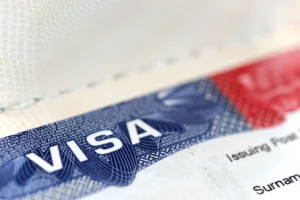A Thai business partnership is a legal structure where two or more individuals or entities join together to conduct business. Partnerships in Thailand are governed by the Civil and Commercial Code and can be classified into three types: ordinary partnership, registered ordinary partnership, and limited partnership. Each type has distinct characteristics regarding liability, registration requirements, and tax obligations. Selecting the right partnership type is crucial for ensuring compliance with Thai laws and protecting the partners’ interests.
1. Types of Business Partnerships in Thailand
1.1 Ordinary Partnership (Unregistered)
- Structure: Composed of two or more partners who share profits and liabilities.
- Liability: Partners have unlimited personal liability for the partnership’s debts and obligations.
- Registration: Not required, but this makes the partnership less protected under Thai law.
- Taxation: Income is taxed at the individual partner level.
Example: Two individuals running a small business without formal incorporation.
1.2 Registered Ordinary Partnership
- Structure: Similar to an ordinary partnership, but it is formally registered with the Department of Business Development (DBD).
- Liability: Partners still have unlimited liability, but the partnership is a separate legal entity.
- Registration: Offers legal protection and greater business credibility.
- Taxation: The partnership is taxed as a corporate entity.
Example: A family business that registers to obtain legal recognition and liability protection.
1.3 Limited Partnership
- Structure: Consists of two types of partners:
- General Partners: Have unlimited liability and manage the business.
- Limited Partners: Have limited liability, restricted to their capital contribution, and cannot participate in management.
- Registration: Mandatory with the DBD.
- Taxation: Treated as a corporate entity for tax purposes.
Example: A tech startup where general partners handle operations while investors join as limited partners.
2. Key Differences Between Partnership Types
| Criteria | Ordinary Partnership | Registered Ordinary Partnership | Limited Partnership |
|---|---|---|---|
| Legal Status | Not a legal entity | Separate legal entity | Separate legal entity |
| Liability | Unlimited | Unlimited | General: Unlimited / Limited: Limited |
| Taxation | Personal income tax | Corporate tax | Corporate tax |
| Management | All partners | All partners | General partners only |
| Registration Requirement | No | Yes | Yes |
3. Registration Process for Business Partnerships
Step 1: Draft a Partnership Agreement
- Outline key details such as capital contributions, profit-sharing, and management roles.
Step 2: Submit Registration Documents
- Register with the Department of Business Development (DBD) at the Ministry of Commerce. Required documents include:
- Partnership agreement
- Identification documents for all partners
- Business objectives and address
Step 3: Obtain Tax ID and Register for VAT (if applicable)
- Partnerships with revenue exceeding 1.8 million THB annually must register for Value-Added Tax (VAT).
4. Taxation for Business Partnerships in Thailand
- Registered Ordinary and Limited Partnerships are taxed as corporate entities at a 20% corporate income tax rate.
- Ordinary (Unregistered) Partnerships are subject to personal income tax, with profits allocated to partners based on their share.
- Withholding Tax may apply to dividends and payments made to third parties.
5. Advantages and Disadvantages of Business Partnerships
5.1 Advantages
- Simplicity: Easier to set up compared to a limited company.
- Flexibility: Partners can easily allocate profits and responsibilities.
- Cost-Effective: Lower registration fees and fewer compliance requirements.
5.2 Disadvantages
- Unlimited Liability: General partners are personally liable for the partnership’s debts.
- Limited Fundraising Potential: Raising capital is more challenging than for corporations.
- Potential for Disputes: Lack of clear governance can lead to disagreements.
6. Legal Considerations for Foreigners
Foreign nationals can participate in Thai business partnerships, but they must comply with the Foreign Business Act (FBA), which restricts foreign ownership in certain industries.
- Ordinary and Registered Ordinary Partnerships: Foreigners can hold minority shares (up to 49%) without special approval.
- Limited Partnerships: Foreigners may be limited partners with restricted liability, but restrictions apply to general partner roles.
For partnerships in restricted sectors, foreign partners must obtain a Foreign Business License or invest through BOI-promoted activities (Board of Investment).
7. Conclusion
Thai business partnerships offer a flexible and cost-effective structure for conducting business in Thailand. However, understanding the legal and tax implications of each partnership type is crucial for choosing the right structure. Whether you are a local entrepreneur or a foreign investor, carefully drafting a partnership agreement, ensuring compliance, and seeking legal advice will help protect your interests and set your business up for success.




